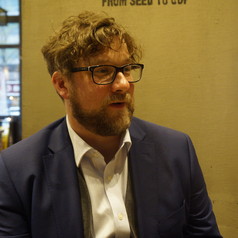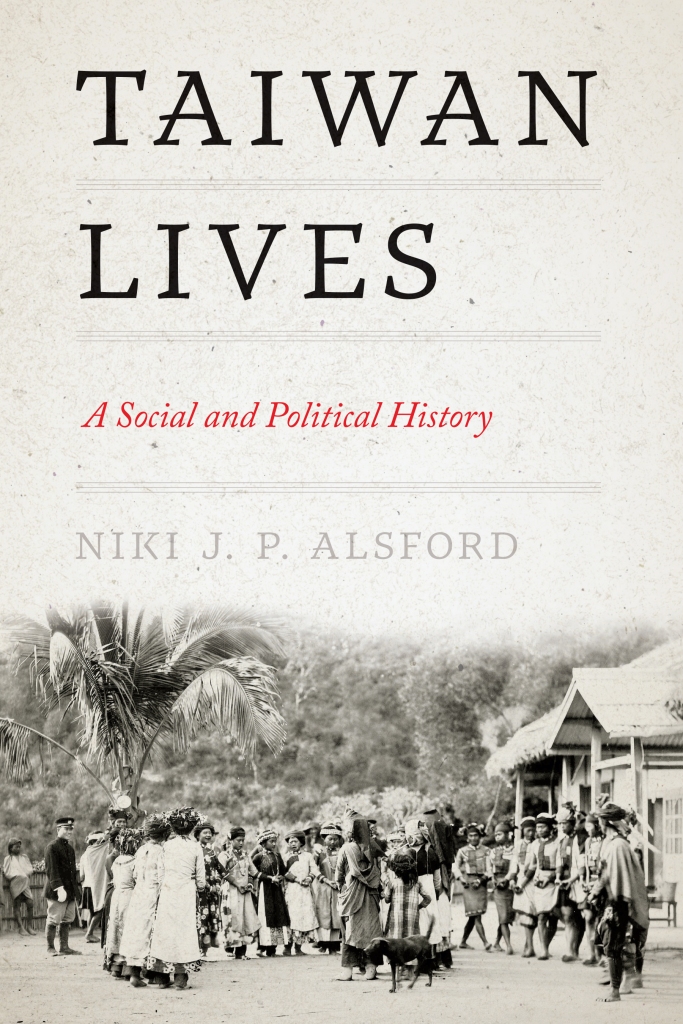Taiwan, a society of twenty-three million people in Asia, can be thought of as living two lives. From one perspective, it is a bright, vibrant democracy at the forefront of LGBTQ+ rights, avant garde art and film, and student activism. On the other hand, it is a geopolitical hotspot, caught in a great power rivalry and a lynchpin of the semiconductor industry, critical for global supply chains and militaries around the world. Between these two poles exist countless social, cultural, and political issues that animate Taiwan and the field of Taiwan studies, rich for scholarly excavation.
These issues drive the field of Taiwan studies at large and encouraged me and my colleagues, William Lavely and Madeleine Yue Dong, to launch a new series: Taiwan and the World.
In 2018, after the founding of the Taiwan studies program at the University of Washington, we worked with Lorri Hagman, then UW Press executive editor and now executive editor of special projects, to start a new monograph series that would highlight the groundbreaking humanities and social science scholarship about Taiwan. We see the field as having rich potential, not just for illuminating the issues that are unique to Taiwan, but serving as a cauldron for the larger social and political changes the world is seeing.
We are proud to announce the launch of the first book in our series, Taiwan Lives: A Social and Political History by Niki J. P. Alsford. The book explores two dozen individuals from all walks of life—politician, popstar, doctor, prisoner, diplomat, hawker, just to name a few—from the nineteenth century to present. Each of them touches upon a significant event or social transformation in Taiwan, whether its serial colonizations under foreign empires, the White Terror period of martial law, or its transition to democracy. Through the windows of these individual lives, Alsford weaves together a narrative of the complexities of Taiwan’s history. Most important, it centers the voices of the Taiwanese themselves.
Alsford’s groundbreaking book represents the ideals that our series hopes to achieve. It offers a new perspective in approaching Taiwan—in this case, from the ground up, and from the perspective of ordinary and sometimes marginalized peoples. This “people’s history,” as Alsford explains, presents accounts from “the common people,” thus “accentuating the island’s interconnectivity and cultural complexity.” It is also meant to make Taiwan accessible to broader audiences. Focusing not on the geopolitical conflicts of statesmen and wars, Alsford instead brings to fore the lived experiences that readers inside and outside of the classroom can appreciate and relate to.
Taiwan Lives will be followed shortly by the second book in the series, Good Wife, Wise Mother: Educating Han Taiwanese Girls under Japanese Rule by Fang Yu Hu. Examining the complicated period of Japanese imperial rule in Taiwan (1895-1945), Hu explores how Japanese colonialism shaped social roles and cultural identities of women. Hu’s careful historical research offers rich oral history and archival accounts for readers interested in the intersection of education, gender, and empire.
As our series grows, we hope to explore the numerous issues that locate Taiwan on the frontier of social, cultural, and political concerns. As a series of islands situated in the Pacific, Taiwan has been interlinked with maritime communities and is exposed to the same pressures of climate change and ecological interactions as many other Pacific Island communities. Its society is a melting pot of Indigenous peoples, settlers from colonial histories, and newly arrived immigrants seeking better economic opportunities. Issues of indigeneity, identity, and race intersect with concerns of justice and rights. Taiwan has been in the vanguard of LGBTQ+ movements in Asia and has broken the glass ceiling for the highest levels of political office. But beneath the veneer of success also lie complexities over gender and equality. And as Taiwan’s complicated sovereignty is increasingly drawing the attention of nations around the world, its potential for conflict draws eyes to its politics on the largest geopolitical fault lines.
In the coming months and years, we are excited for books in the pipeline that explore Taiwan’s colonial past, its environmental and economic present, and its contested political future. We also welcome monograph submissions from interested authors who see their research and writing breaking new ground in Taiwan studies and who hope to reach wide audiences of students, educators, policymakers, and the general public. We intend for our upcoming books to redefine the frontier of Taiwan studies and emphasize the importance of Taiwan for understanding the major themes and problems in our world and society at large.
Interested authors should send book proposals to acquisitions editor Caitlin Tyler-Richards at ctylerri@uw.edu.

James Lin is assistant professor of international studies at the University of Washington and a historian of modern Taiwan. His research examines international agrarian development, from early twentieth-century rural reform and agriculture in China and Taiwan through its reimagining during later Taiwanese development missions to Africa, Asia, and Latin America.
Upcoming Event
The UW Taiwan Studies Program welcomes Professor Niki J. P. Alsford to discuss his new book, Taiwan Lives: A Social and Political History: March 6, 3:30–5:00 pm at UW, Thomson Hall Room 317. Register to attend online or in person.

Niki J. P. Alsford is professor in Asia Pacific studies and director of Asia Pacific Institutes at the University of Central Lancashire. In addition, he is a research associate at the Centre of Taiwan Studies at SOAS, the University of London, and an associate member of the faculty of Asian and Middle Eastern studies at the University of Oxford. Alsford is the author of Transitions to Modernity in Taiwan: The Spirit of 1895 and the Cession of Formosa to Japan (Routledge, 2017).
This event was made possible by the generous support of the Chiang Ching-kuo Foundation for International Scholarly Exchange.


